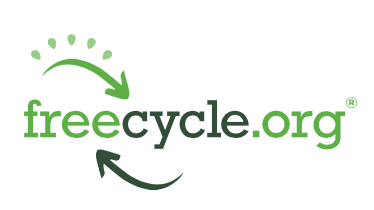

Prior to March 2020, the wearing of a face covering would have been unthinkable for most of us. If you did mention it, we might think of Muslims wearing the niqab or hijab. Now, nearly all of us wear a face mask when out in public. It would seem that the alternative is now ok.
In a passage in Mark’s Gospel (Mark 6:1-13) we might read of a story of Jesus of sending out the disciples far and wide. We aren’t even halfway through the Gospel, and these fishermen, tax collectors etc are now being released, sent away. Where was their induction training, their lengthy in-classroom teaching before a series of placements? And no final examination?!!
Who is this guy?
It all starts on ‘our Sunday’ in ‘Church’ and Jesus is teaching others. He is not a teenager, as reported in Luke’s Gospel but an adult, but not one cultivated as a Rabbi.
He doesn’t wear a collar.
Jesus gets criticised about his trade. ‘A carpenter’ albeit that tekton, the word in Greek means: a worker in wood, a carpenter, joiner, builder, or any craftsman, or the art of poetry, or maker of songs, even a planner, contriver, plotter, and an author. Some would argue that the Carpenter, given the references in 1 Samuel 13:19 and 1 Chronicles 4:14, suggest that the carpenter could have been seen as a head of their guild. It could even suggest a hierarchy with the Carpenter needing given some exalted status; so why criticise his way of employment?
The Criticism continues
His family gets criticised as well. He is the son of a single mother – note no mention of Joseph – and 4 brothers (James, Joses, Judas and Simon) and 2 sisters (who are sadly unnamed – but purportedly could be a Salome and a Mary or a Salome and an Anna). Recalling the much later story from John’s Gospel of a Samaritan woman who had married five times, to live, to be part of society, Jesus’ family is non-standard.
The criticism doesn’t stop there. Remember that the family once criticised Jesus: “He is out of his mind” (Mark 3:21), the Scribes come all the way from Jerusalem to add fuel to the fire and say “He is Beelzebul” (Mark 3:22) . Then on one of the six boat journeys that Mark records (or writes about) Jesus meets folk and they plead for him to leave (Mark 5:17). Nevertheless he continues to heal and restore people back within society.
Just as the woman who has haemorrhaged for 12 years, and the 12 year old child who has seemingly died, faith is reported as necessary as part of the healing process. After years of being marginalised, it would seem that the alternative is now ok. Maybe, as recorded in other Bible stories, faith isn’t a necessary pre-requisite for healing/restoration. Perhaps being open to being part of Kin_dom, one community, is vital?
Jesus prepares the disciples for the off

OK let’s forgo the training, the time needed to become accustomed to the new equipment, the high investment needed for the long term planning strategy: let’s go!
If people don’t want you, no need to criticise them, take nothing from them, not even the sand around their house.
So with enough clothing for the day, with just the means for travelling for that day (sandals): they are sent out. They don’t have the finances to stay at the nearest 5 star accommodation, nor AirBnB if that were available. They are to totally rely upon hospitality from others. It would seem that that the alternative is now ok.
What’s the Takeaway from all this?

Do we encounter others as economic steps upon our ladder of success? Do we seek payment for helping others. What of the likes, for example, of Freecycle where items are freely given away, to help others. Offering our accommodation, a place at the table, currently is a non-starter due to Covid19 but afterwards?
And what of that family? You remember the family of Jesus. What if we met a single mother with 4 boys and 2 girls – not necessarily limited to binary genders either? Could we say that the once considered alternative is now ok, and they are truly welcome? That would truly be the Kin_dom of God.

One thing about jesus is integrity , a wise man once said to me a mind that follows a single path finds peace and jesus was singleminded of living the calling the father had given him.
There is an interesting parable (Mark 7) where Jesus meets a Syro-Phoenician women, and seemingly changes his mind. Perhaps he was reminded of his calling again. We all need that reminder.